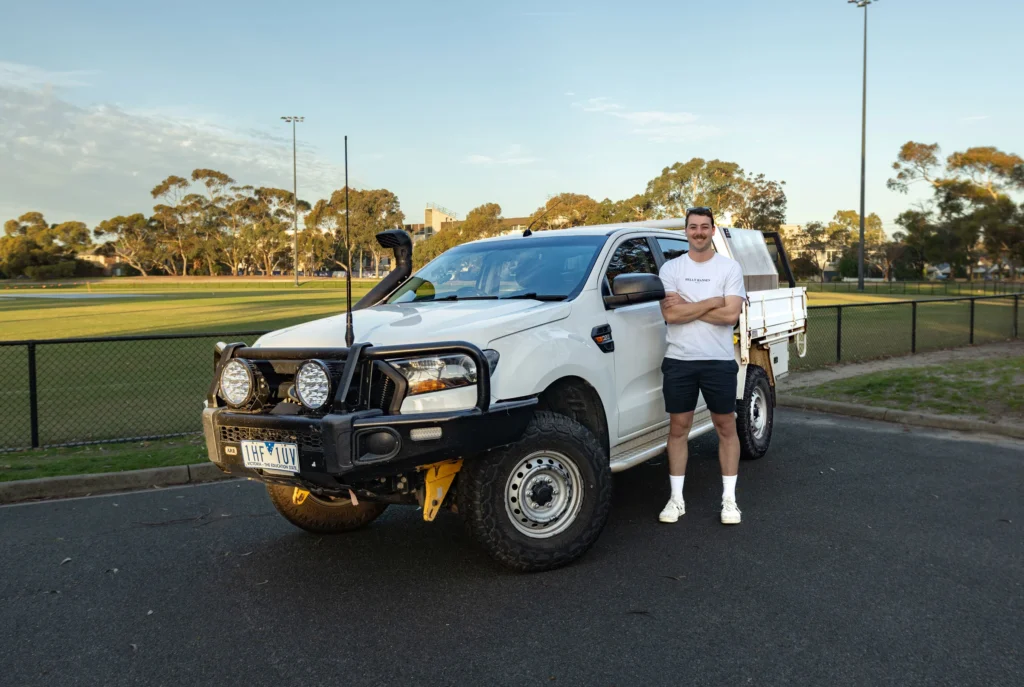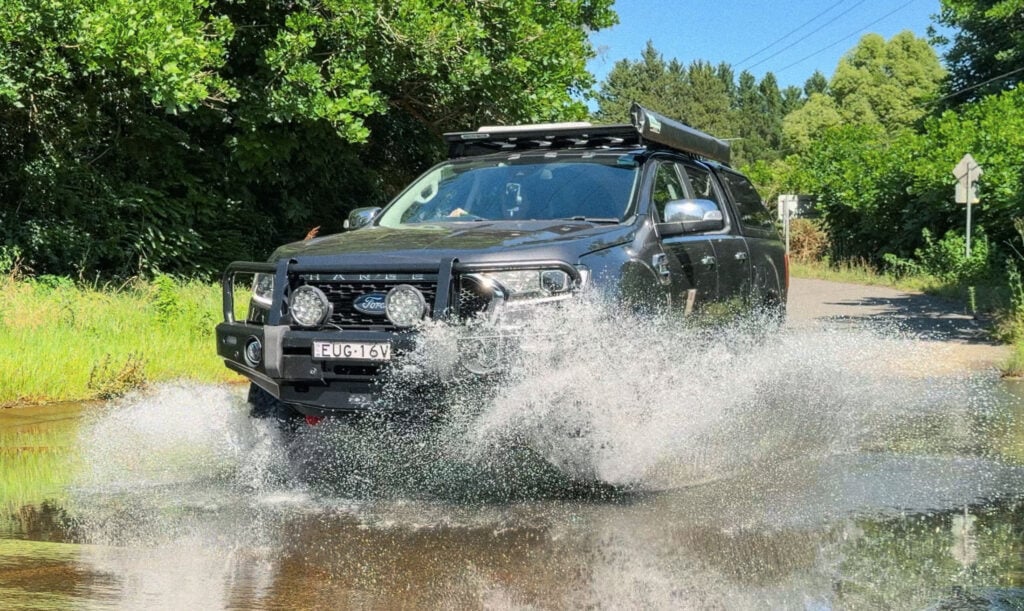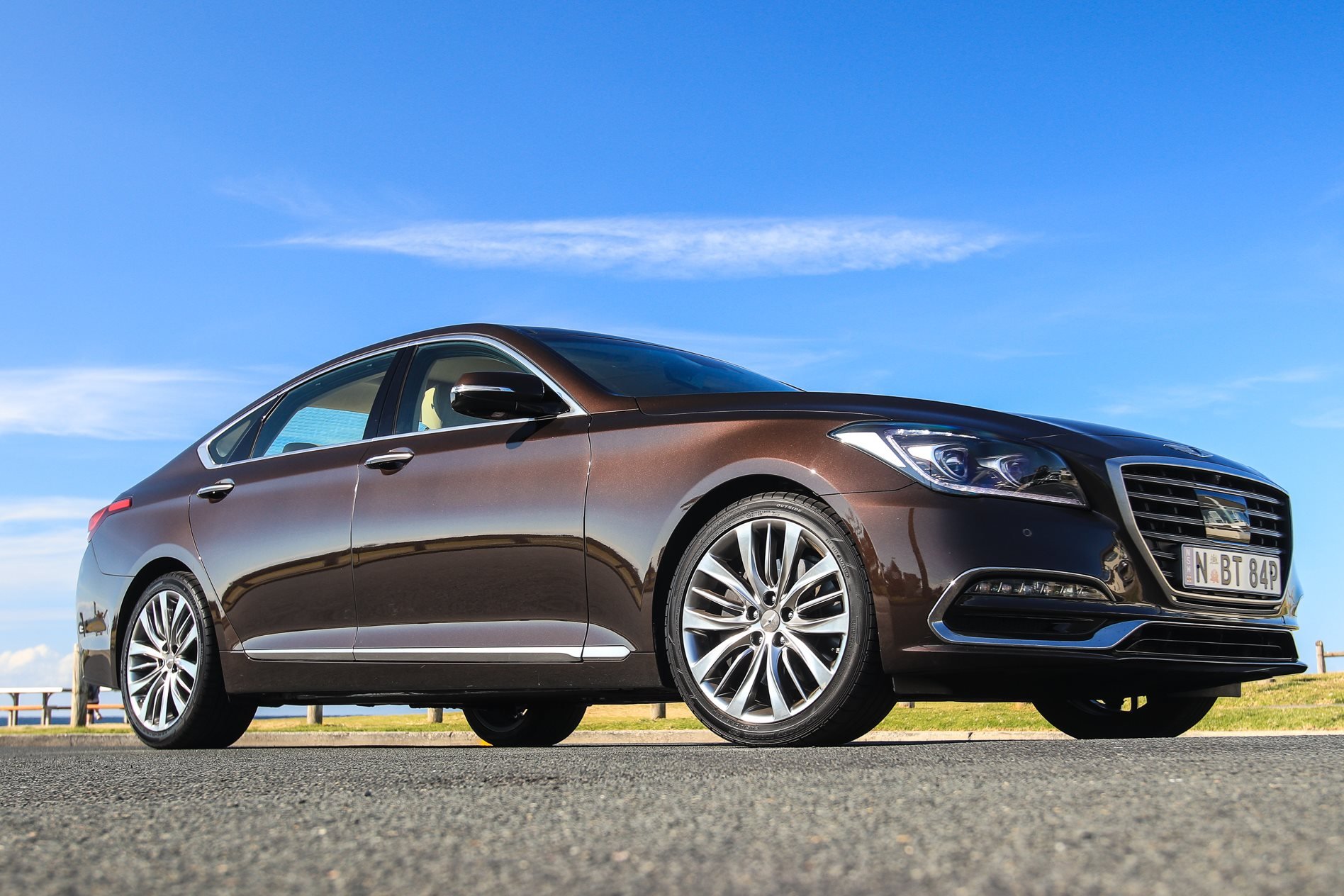
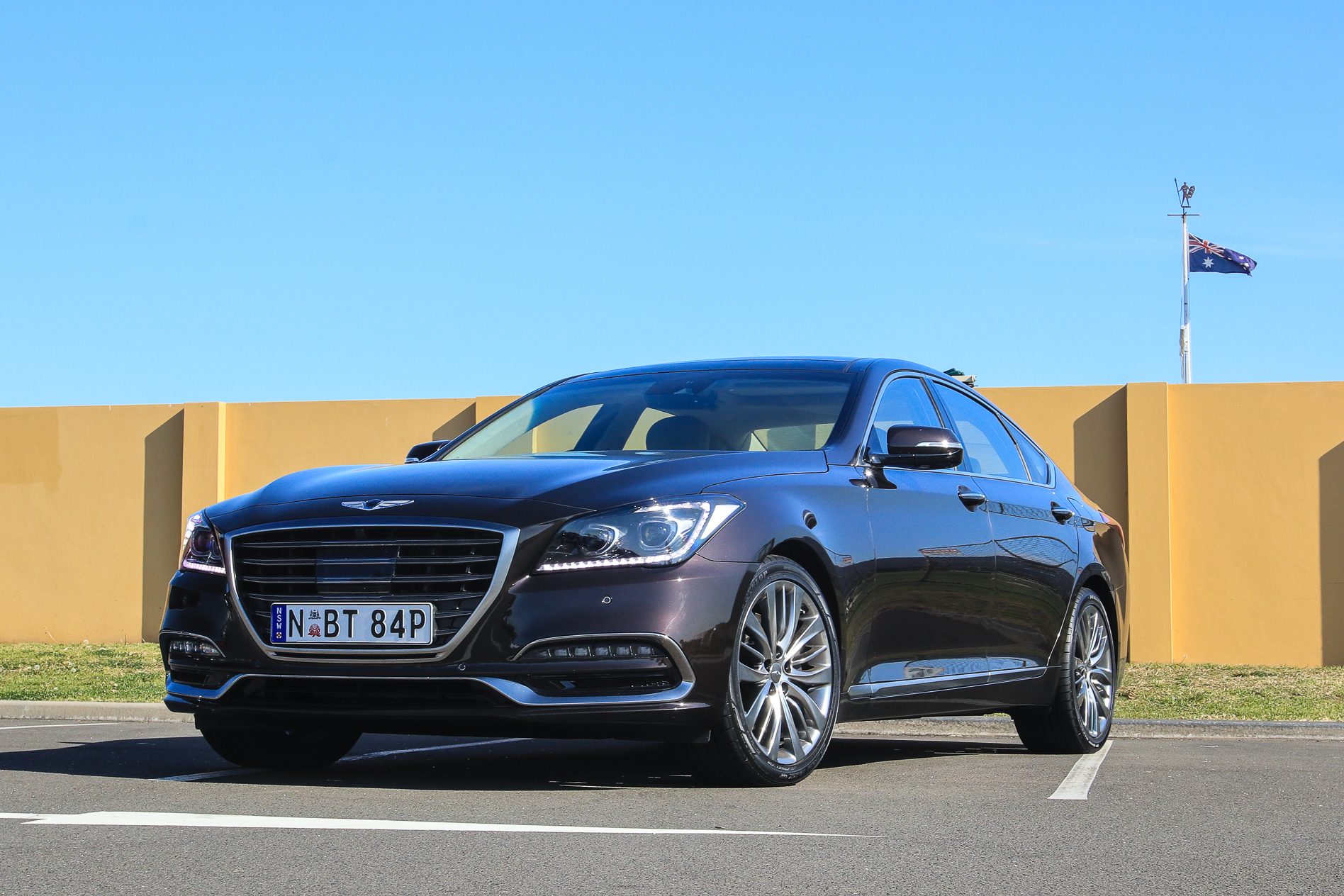
Genesis has had an interesting run here in Australia, and I wouldn’t be surprised if you’re scratching your head wondering what the heck a Genesis even is. Think of it as Hyundai’s Lexus, and you’re on the money.
In 2014, this very same car – then known as the Hyundai Genesis – launched in Australia… and when I say ‘this very same’, that’s exactly what I mean.
Same DH platform, same 232kW/397Nm 3.8-litre GDi V6 that sends power to the rear end via the same Hyundai-built eight-speed automatic… other than being five years older, it’s essentially the same car.
Hyundai sold about 1200 of the large four-door, five-seat sedans – and mostly into the hire car arena, where significant discounts were offered to commercial buyers ‑ before dropping the car from the range in 2017.
So… why is it back? Genesis is now a standalone brand, with big designs on the luxury segment here in Australia. But – to me at least – it’s all a bit of a weird deal, particularly in light of the fact that an all-new G80 is due next year.
Value
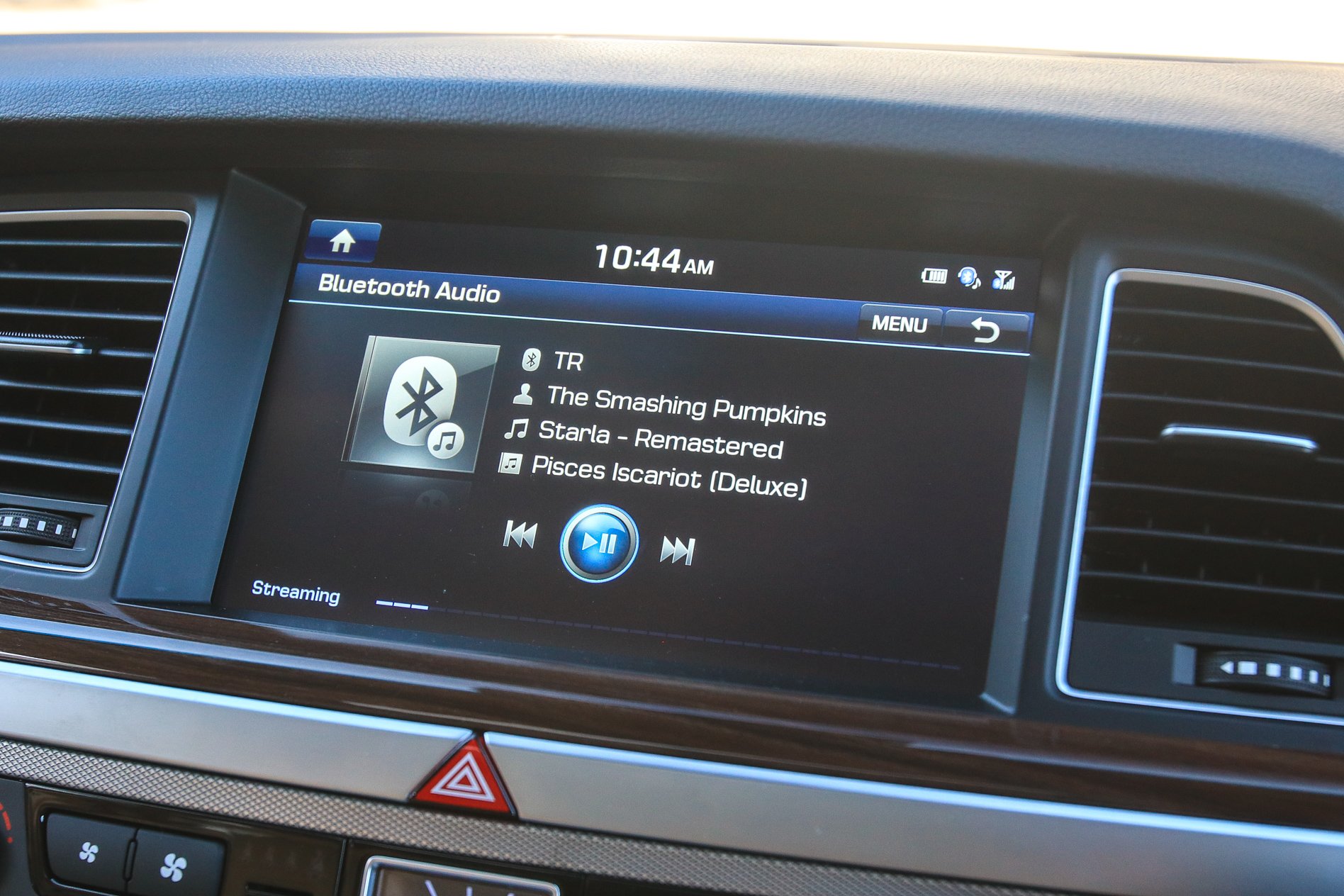
On test is the upper-middle grade G80 3.8 Ultimate, which sells for $88,900. The entry-level 3.8 is $68,900, while the 3.8 Sport Design derivative is $72,900.
The Ultimate fits in underneath the range-topping Ultimate Sport Design, which is $92,900 before on-road costs.
Oh, and if you’re looking for a deal, Genesis says that the pricing is “non-negotiable”. Weirdness number one right there… who won’t negotiate on the price of a car?
This pricing puts it around $9000 to $11,000 over the price of the previous Genesis, for what is essentially the same car.
In terms of competition, the entry-level Mercedes-Benz E200 is $92,600, and the equivalent BMW 520i is $89,990.
The six-cylinder Lexus GS350 starts at $94,900, while a more direct competitor in terms of size and appointments might actually be the cheaper ES300h Sports Luxury at $74,888.
Genesis offsets the price of the G80 by offering five years of free servicing, a five-year, unlimited-kilometre warranty, five years of roadside service, five years of navigation map updates and five year’s membership to the Genesis To You program, which includes a home-delivery test-drive service, valet collection of your car for servicing and other benefits.
Genesis claims a fuel consumption figure of 10.4L/100km, and over 440km of testing, I scored a respectable 10.9L/100km over a range of terrain.
Standard features
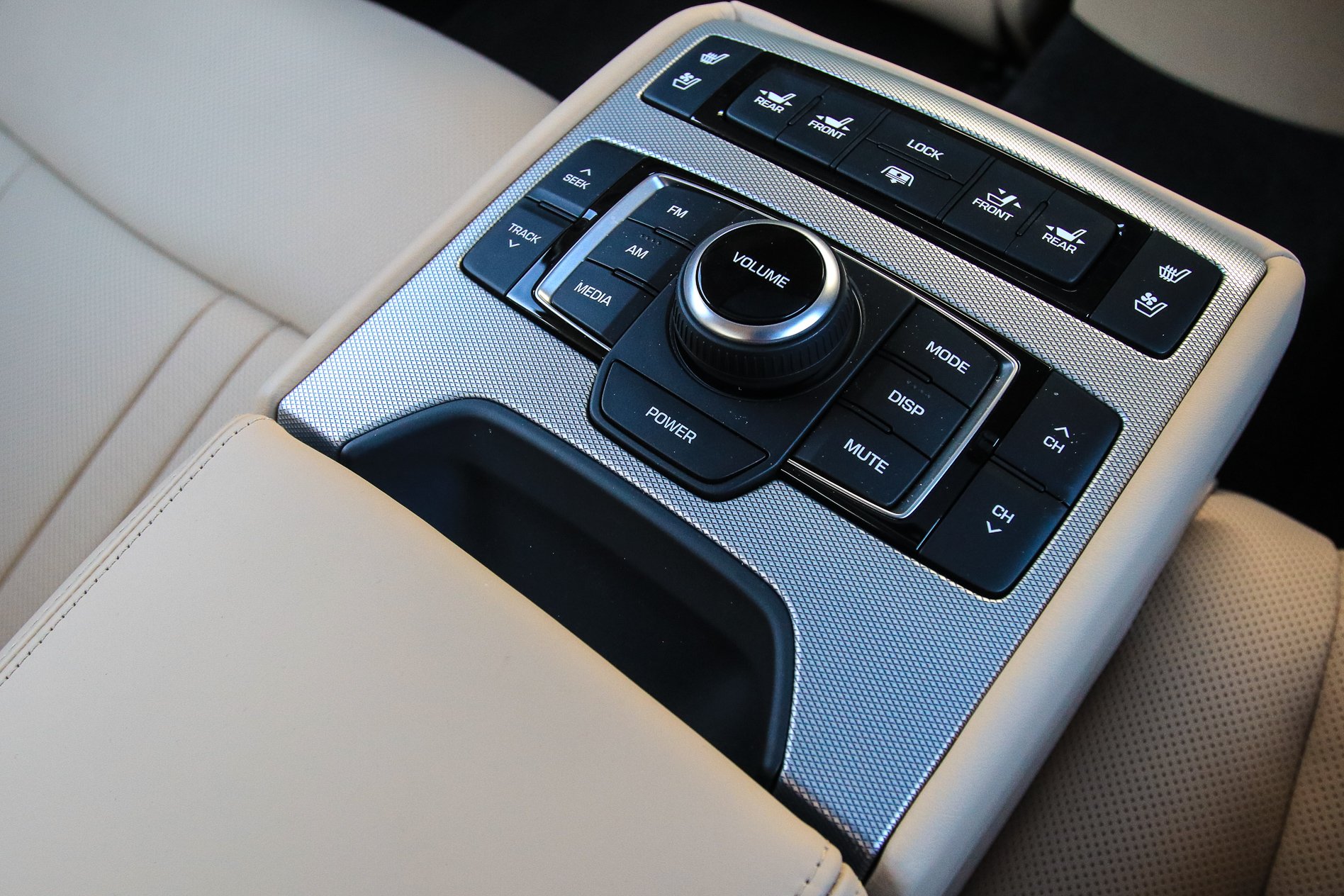
For your dough, the Ultimate is pretty well specced, save for a few glaring omissions. Luxury plays like a 17-speaker stereo system, wireless phone charging, LED headlights, a 9.2-inch multimedia system with sat nav, powered steering column, Nappa-grade leather upholstery, heated and vented front and rear outside seats, powered soft-close doors and reclining rear seats are all present and correct.
Automatic headlights and wipers, a heads-up display, keyless entry and a powered boot lid are also standard.
The biggest difference over the… erm, previous Genesis is the addition of adaptive suspension which, like its predecessor, has been tuned for Australian conditions. The gear-shifter is now electronic, but that’s the extent of the mechanical changes.
For me, though, it’s what the G80 doesn’t have that cruels it. No Apple CarPlay or Android Auto? Really? Come on… it comes standard in a $15,490 Hyundai Accent!
And while it does offer high-grade driver safety aids like high-speed AEB with traffic jam stop-start and rear cross-traffic alert, it misses out on other basic driver safety aids like speed sign recognition – which, for mine, is as big a miss as Apple CarPlay.
Size
As a favourite of the airport driver crowd, the G80 nee Genesis has been well received for its large boot capacity and reasonable rear-seat room.
Note the use of the word ‘reasonable’… if you’re expecting Holden Statesman-like room in the rear of the G80, you’ll need to adjust your thinking. Despite being a shade under five metres long and its three metre-long wheelbase, the rear seats feel more like those you’d find in a Commodore.
It looks like a saloon but the sheer bulk of the back seats actually swallows up a surprising amount of room. As well, the fixed rear seats means that the 493-litre (VDA-measured) boot capacity is all you get. It’s reasonably sized but awkwardly shaped thanks to the hinge covers intruding into the space.
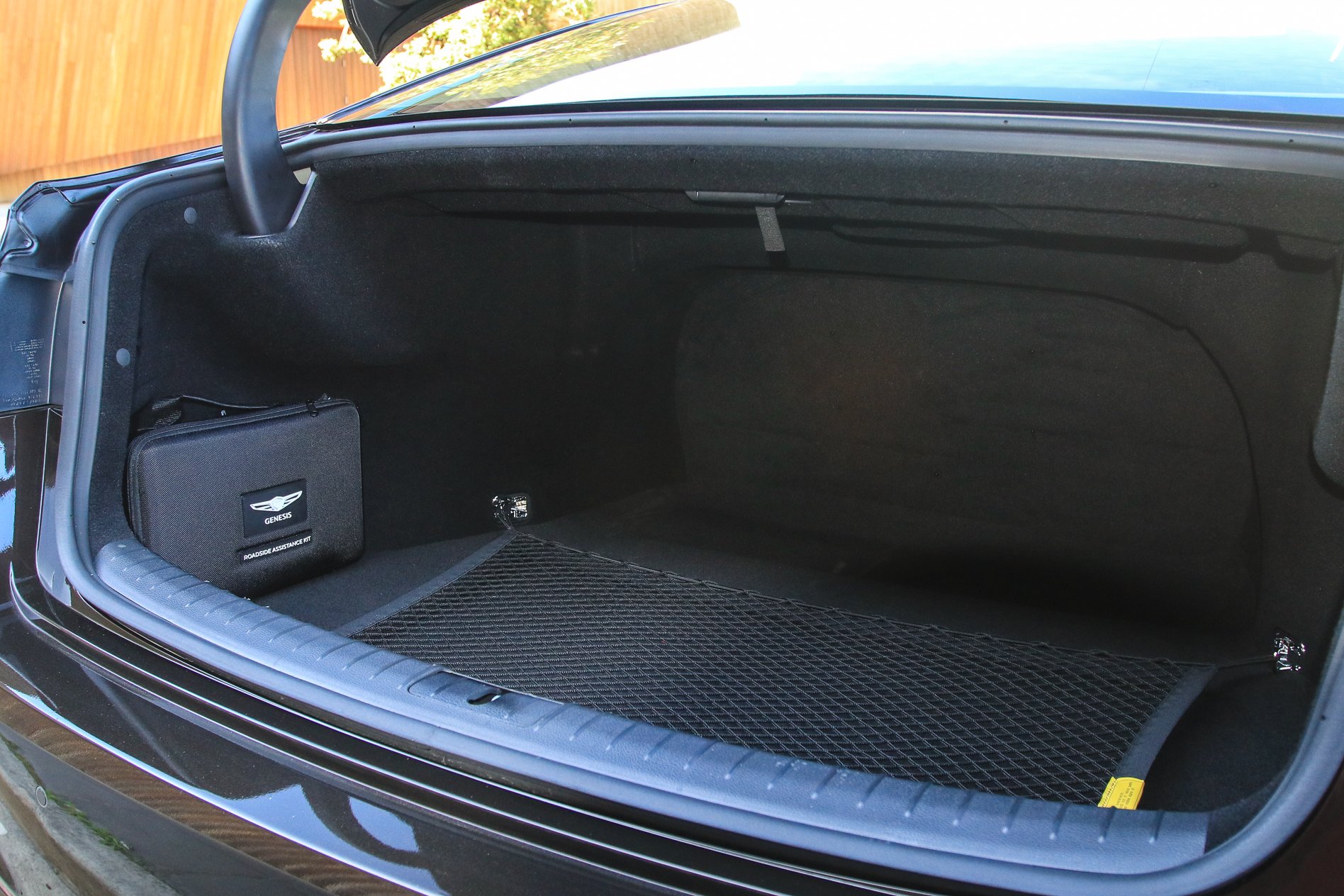
Up front, there is plenty of headroom and width for driver and passenger… and the rear seaters have their own set of controls to move those front seats forward should there not be enough space!
Safety
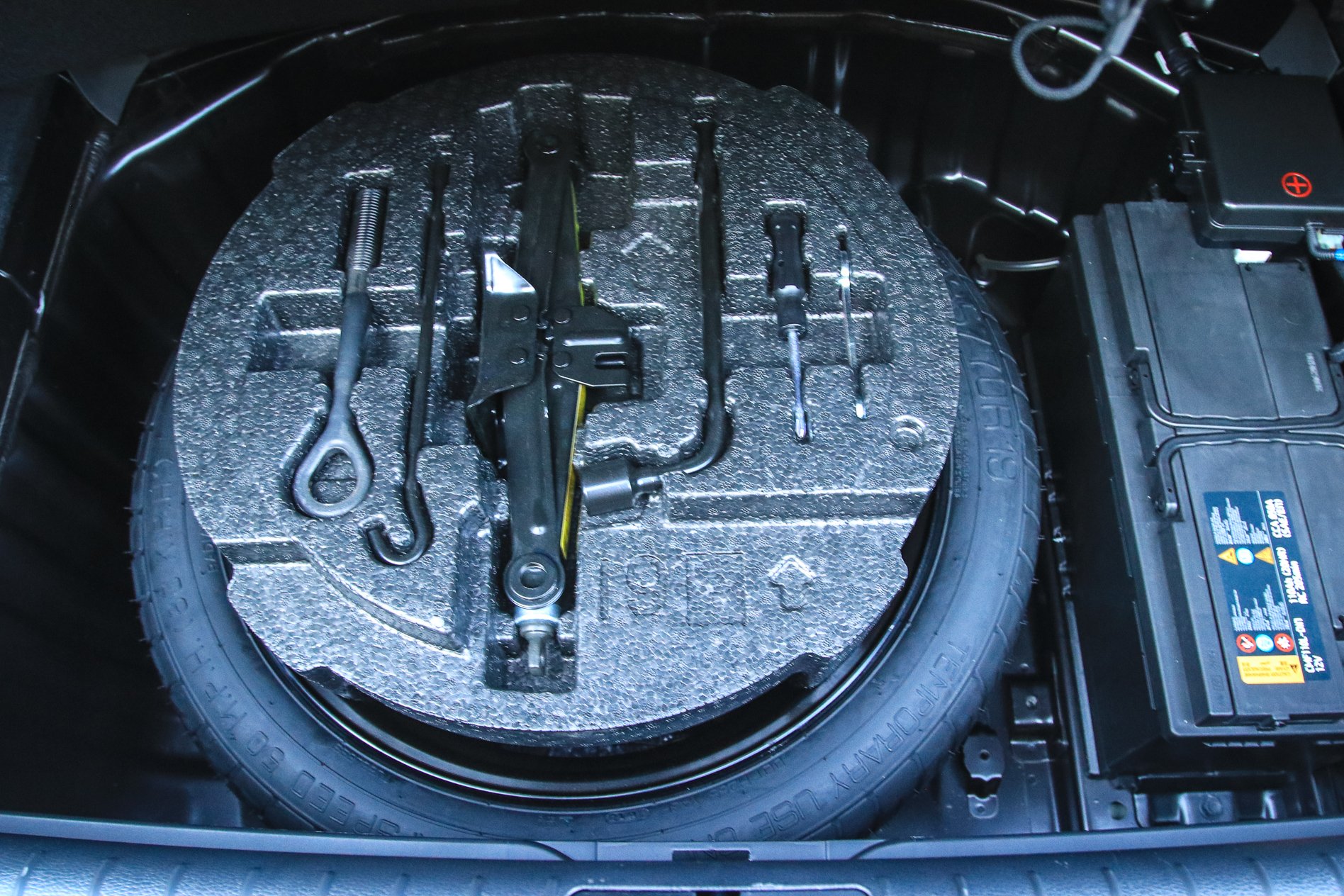
There is plenty of passive and active safety gear aboard the G80, including nine airbags, high- and low-speed AEB, adaptive cruise control, 360-degree camera, lane departure warning, rear cross-traffic alert and blind-spot warning. It’s rated at a maximum of five stars on the ANCAP scale.
Comfort
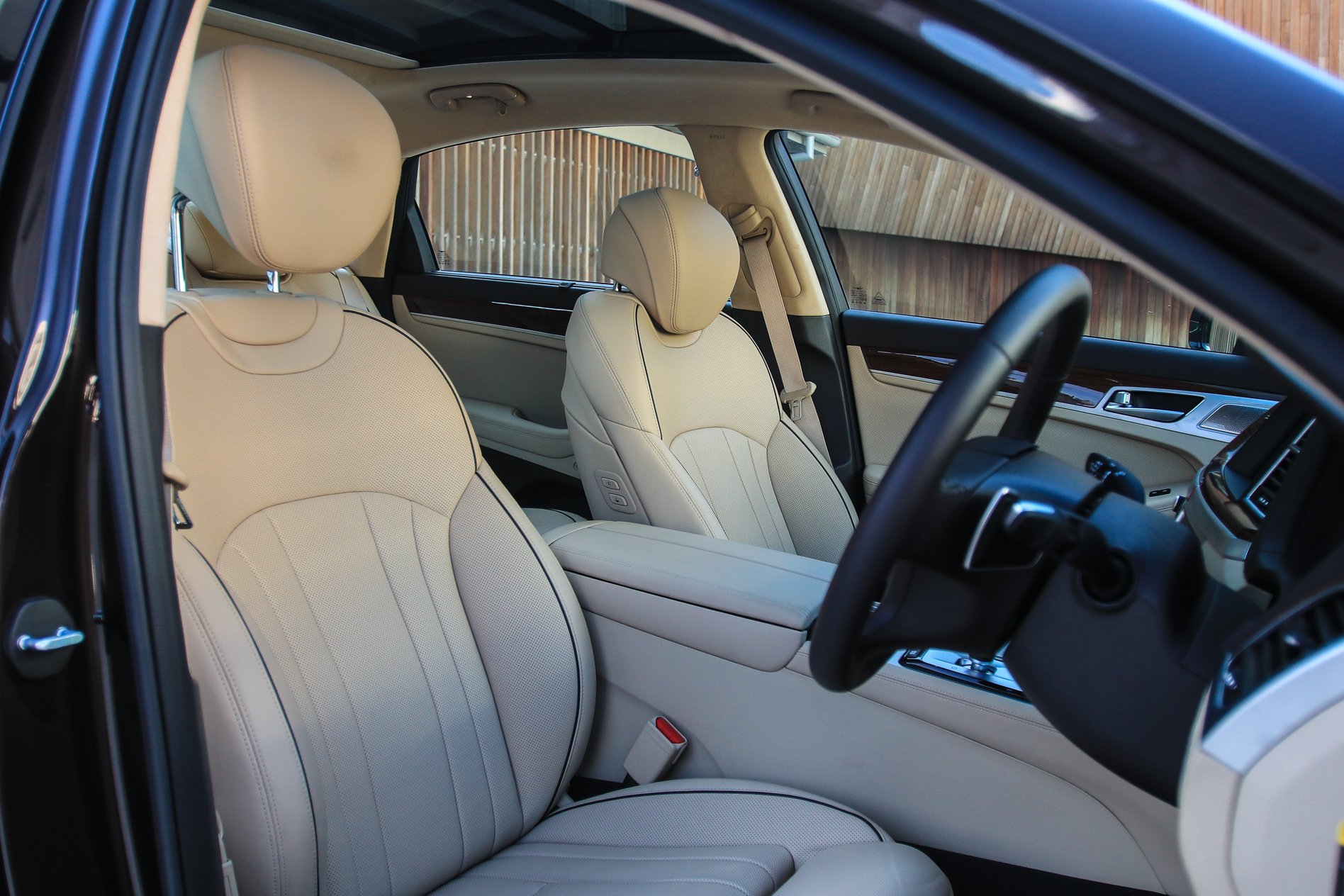
It’s supposed to be all about the back seats in the Genesis G80, and make no mistake… they are pretty comfy. A myriad of adjustments to seat back inclination, seat base length and degree of heating (or cooling) is complemented by an almost bewildering array of controls for temperature and multimedia controls.
Lord help and save the front seaters if a practical joker takes up residence in the rear seats…
As mentioned, there’s enough room for tall rear seaters, but you’d expect more given the length of the car.
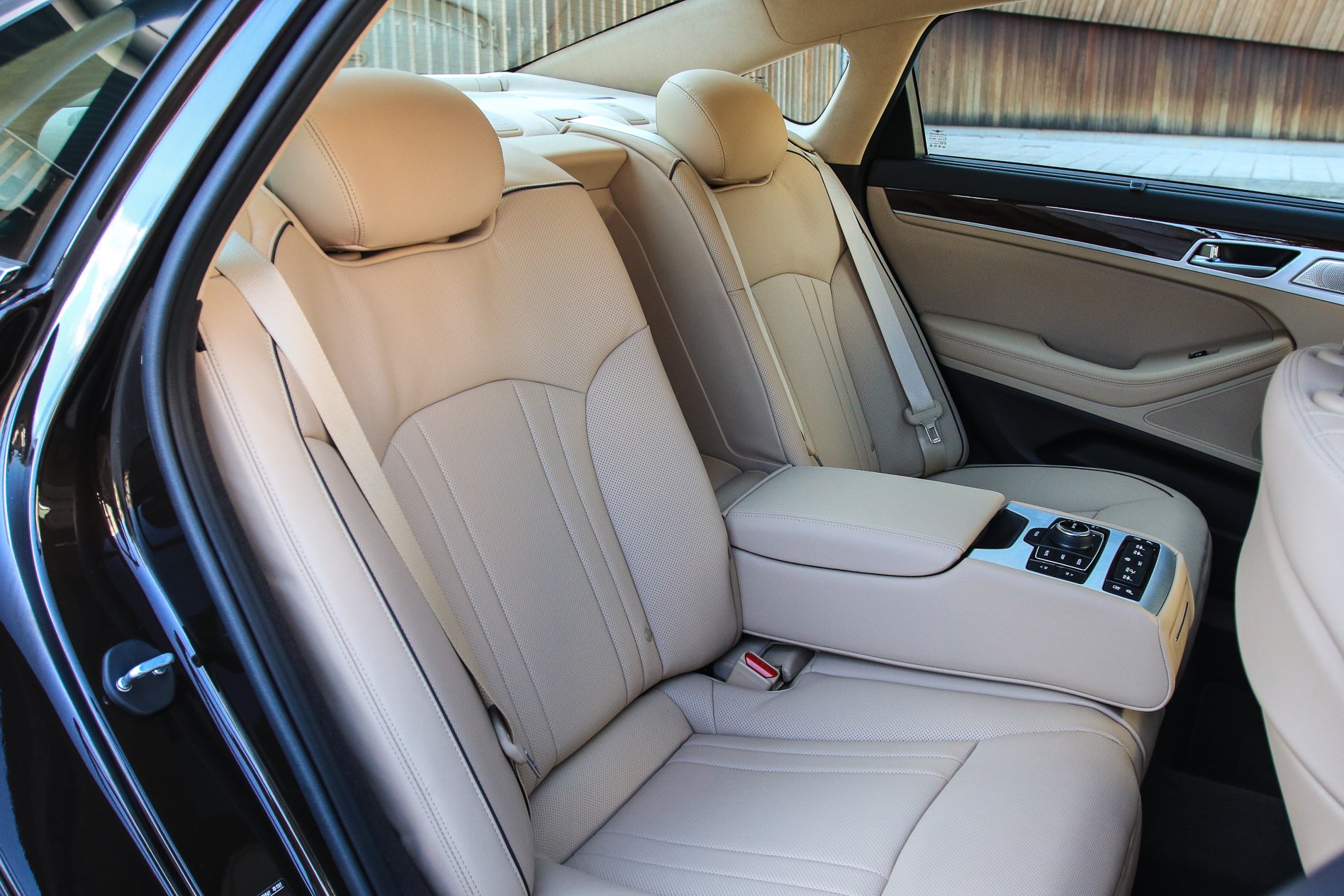
The front seats are very comfortable, though, and can be set into position. Noise intrusion, too, is all but non-existent, with the V6 barely making its presence felt. Wind noise and tyre roar are muted, too.
For mine, though, the main issue with cabin comfort is the fact that the cabin, once Hyundai’s shining beacon of the future, now looks little different to a current-day Elantra or Santa Fe.
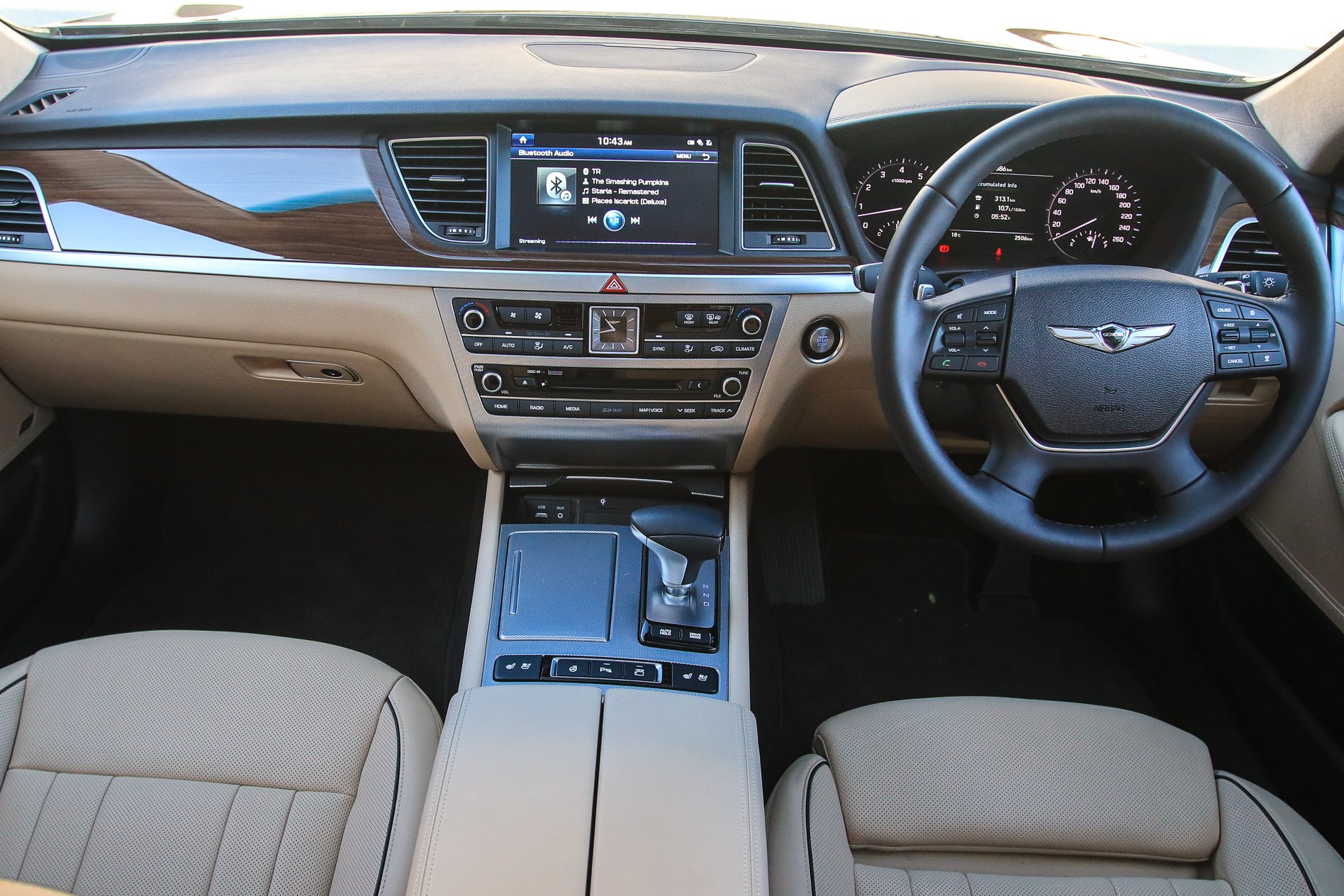
The integrated multimedia system lifts the space, as does the lavish use of premium materials like milled alloy, and the buttons and controls themselves are beautifully weighted.
But the fonts and graphics do nothing to separate the Genesis from more pedestrian Hyundai product, which really is just a side-effect of the car’s relative age.
On the road
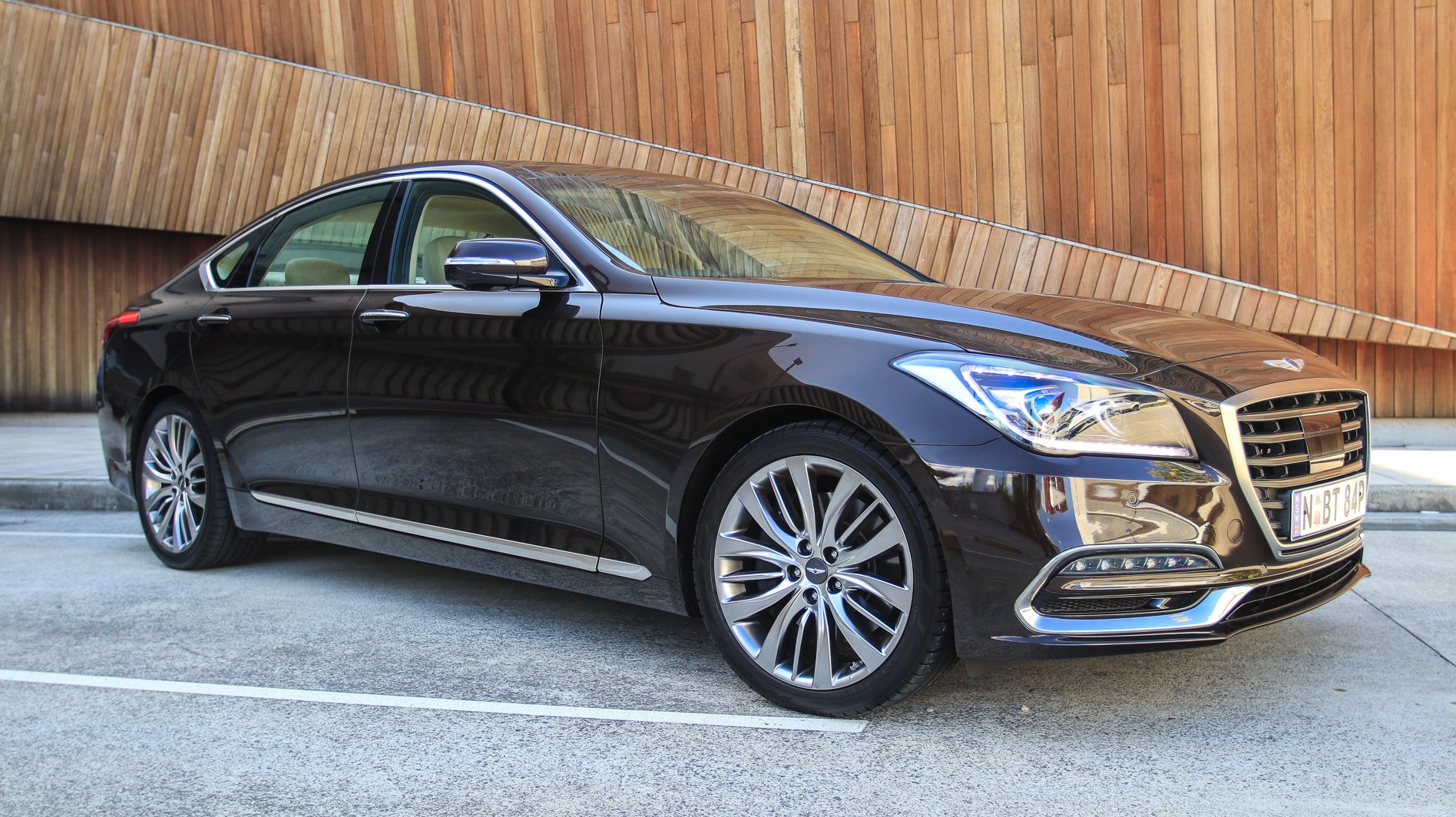
At almost two tonnes in weight and five metres in length, you’d be forgiven about forming preconceptions about how the G80 will handle. Well, you’re wrong.
With the hard work done by Hyundai’s chassis tuners when the G80 was here in 2014, the addition of adaptive dampers and a going-over of the car’s dynamic specs have yielded a big car with mid-size car manners… and a good mid-sized car at that.
Steering feel is light yet sufficiently weighted and feelsome to impart a sense of stability and balance at all speeds, while the compromise between a comfortable ride and decent chassis control is beautifully struck.
The G80’s primary ride is just about perfect on every road surface, underpinned by a solidity that makes you take a second glance at the badge when you hop out.
Brake feel, too, is just terrific, allowing the driver to manage his passenger’s comfort with absolute ease.
The engine does a good-to-adequate job of propelling the 1995kg G80 from rest, and interestingly the rear-drive configuration is neither here or there to me when it comes to its dynamic performance.
It can sound a little strained if you’re asking a bit of it from rest, but it holds a cruising altitude with aplomb.
Verdict
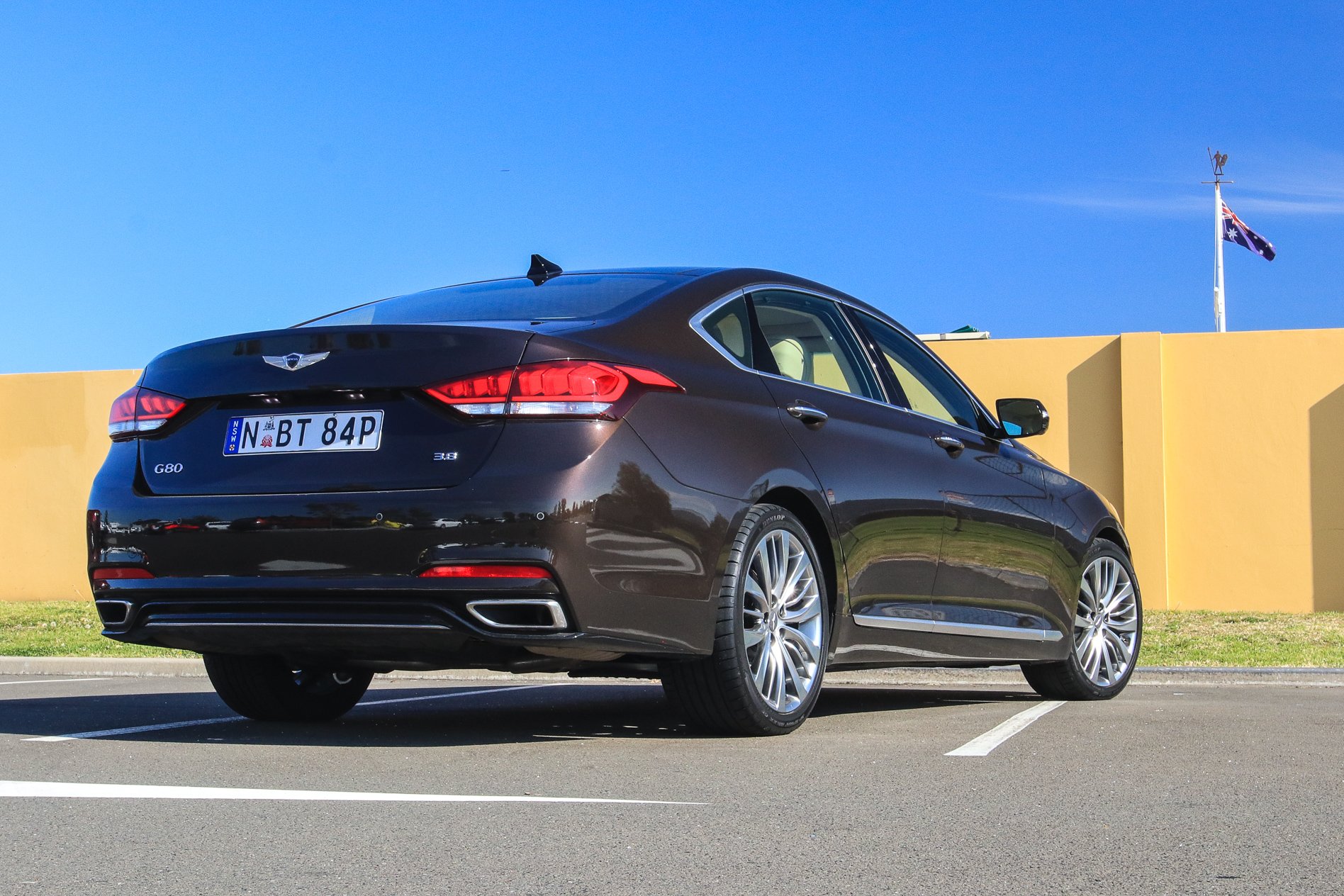
An interesting one… taken in isolation, the G80 is the wrong car for the times, presented in a way that might not necessarily win it friends or influence. It’s based on tech we’ve seen before – and paid less for! And with exactly two dealers on the books and a no-negotiation policy, its ability to get out into the wild is limited.
However, as a foil to its smaller, newer and more accomplished G70 sibling, I can see why the G80 has to exist, as Genesis impatiently awaits the all-new version that’s rumoured to be dropping in 2020, as well as an SUV or two to tap into the crossover zeitgeist.
There’s a car for everyone, and the hire driver set will be keen to at least have a look. Genesis’s current approach to an ultra-competitive automotive retail space, though, will not make the job of getting bums in G80 seats especially easy.


